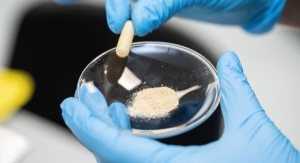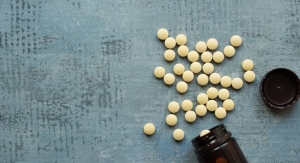Steven Allen, Nutrition Capital Network08.15.12
I attended the NBJ Summit in Dana Point in July and once again the event was a big hit with a large group from across the supplement industry. Many congratulations to Jerry Holly and Jeff Bland for their lifetime achievement awards. One of the highlights was a final day panel featuring David Vladeck of FTC, Daniel Fabricant of FDA and Ralph Tyler, now with Venable, but for many years the Chief General Counsel of the FDA. There is a widespread belief in the supplement industry that both FDA and FTC are unfairly targeting the industry and even using the power of the press to make unwarranted claims of widespread abuse by the industry of, for example, the GMP regulations.
There were multiple references to well-known cases involving Nestlé, Danone and Kellogg’s where the FTC pursued and subsequently obtained consent decrees, which prohibit these companies from making claims that FTC determined are out of line. It is no accident that these actions involve well-known multinational companies. This was perhaps a “warning” to other smaller companies that the Commission would not hesitate to take action to secure consent decrees.
But does prohibiting claims really impact sales? Or are these companies rushing to settle these matters to avoid negative publicity? I think the truth lies somewhere in between. For example, one claim was that “DanActive is clinically proven to help strengthen your body’s defenses,” but the actual advertisement implied that consuming the product would prevent children from getting colds and flu. This is a powerful claim and I can well understand why the company would want to promote this benefit. However, when FTC started the proceedings to halt the claim, it simultaneously involved the Attorneys General from 39 states. The final settlement required Danone to pay a $21 million. In other words, FTC ensured that the financial penalty for Danone was sufficiently large so that they would be highly motivated to settle rather than litigate and try to win a long drawn out legal battle.
Moving on…there was some reference but little comment at the NBJ Summit on the current dispute between the makers of POM Wonderful and FTC. Understandably, Mr. Vladeck did not want to go into detail over a matter that has been appealed by both sides. But it also seems clear that neither side is pushing for a settlement. Of course, POM, which is privately held by the immensely wealthy Resnick family can afford to pursue legal action where others might be motivated to settle. The case is already attracting a lot of interest because the first judgment suggests that the proof for making claims does not necessarily have to be two, double-blind, placebo-controlled clinical trials. If that stands, in theory, it will make it much easier for companies to use less rigorous scientific testing to support product claims.
The Kellogg’s case is also interesting. Here, FTC was mainly concerned about the company using data from a clinical study that were taken out of context in support of a claim. I doubt many consumers would be persuaded to increase their purchase of Kellogg’s cereal because of an ad claiming increased attentiveness, but the cereal market is big, hyper competitive and companies fight battles over fractions of share points. So, marketers are looking for any edge they can to make their products seem more relevant to busy mothers. The product in this case was one of Kellogg’s sugary cereals and since the company has been receiving unfavorable comments for some time, perhaps the intent of the claim was to cast a positive light around a product that has 12 grams of sugar per serving. However, I doubt whether having the claim or not has made much difference to the company’s business results.
There were multiple references to well-known cases involving Nestlé, Danone and Kellogg’s where the FTC pursued and subsequently obtained consent decrees, which prohibit these companies from making claims that FTC determined are out of line. It is no accident that these actions involve well-known multinational companies. This was perhaps a “warning” to other smaller companies that the Commission would not hesitate to take action to secure consent decrees.
But does prohibiting claims really impact sales? Or are these companies rushing to settle these matters to avoid negative publicity? I think the truth lies somewhere in between. For example, one claim was that “DanActive is clinically proven to help strengthen your body’s defenses,” but the actual advertisement implied that consuming the product would prevent children from getting colds and flu. This is a powerful claim and I can well understand why the company would want to promote this benefit. However, when FTC started the proceedings to halt the claim, it simultaneously involved the Attorneys General from 39 states. The final settlement required Danone to pay a $21 million. In other words, FTC ensured that the financial penalty for Danone was sufficiently large so that they would be highly motivated to settle rather than litigate and try to win a long drawn out legal battle.
Moving on…there was some reference but little comment at the NBJ Summit on the current dispute between the makers of POM Wonderful and FTC. Understandably, Mr. Vladeck did not want to go into detail over a matter that has been appealed by both sides. But it also seems clear that neither side is pushing for a settlement. Of course, POM, which is privately held by the immensely wealthy Resnick family can afford to pursue legal action where others might be motivated to settle. The case is already attracting a lot of interest because the first judgment suggests that the proof for making claims does not necessarily have to be two, double-blind, placebo-controlled clinical trials. If that stands, in theory, it will make it much easier for companies to use less rigorous scientific testing to support product claims.
The Kellogg’s case is also interesting. Here, FTC was mainly concerned about the company using data from a clinical study that were taken out of context in support of a claim. I doubt many consumers would be persuaded to increase their purchase of Kellogg’s cereal because of an ad claiming increased attentiveness, but the cereal market is big, hyper competitive and companies fight battles over fractions of share points. So, marketers are looking for any edge they can to make their products seem more relevant to busy mothers. The product in this case was one of Kellogg’s sugary cereals and since the company has been receiving unfavorable comments for some time, perhaps the intent of the claim was to cast a positive light around a product that has 12 grams of sugar per serving. However, I doubt whether having the claim or not has made much difference to the company’s business results.



























